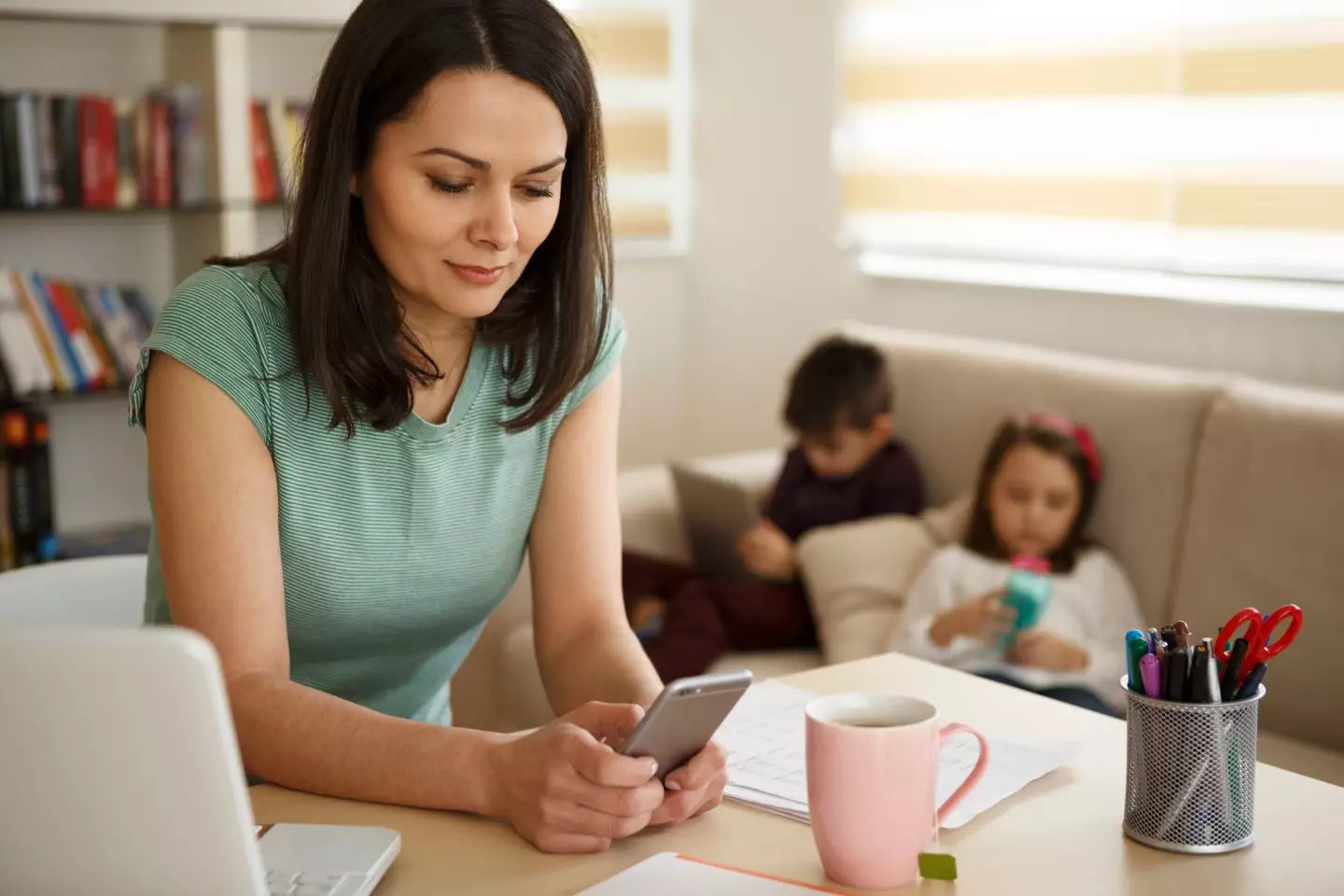.png)
An expert has warned parents against 'phubbing' in front of their children, saying it 'happens to everybody sometimes'.
Although we use smartphones in all aspects of our lives - from keeping in contact with friends, ordering takeaways, buying clothes or simply scrolling through our social media feeds - this could have a detrimental impact on our relationships.
Advert
In fact, the increasing use of smartphones has led to a bunch of social problems like smartphone addiction, the fear of being without a phone which is known as nomophobia, plagonomy (which describes the fear that the phone’s battery will run out), and then there's phubbing.
A study published in Psychological Reports after an online survey conducted in Turkey found that people who experience phubbing are less satisfied with their romantic relationships and see its quality as being lower.

We've all probably done it at some point and lots of people may not even realising they’ve switched off from the conversation or their surroundings to double-tap a motivational Elon Musk quote or gym inspo on Instagram.
Advert
But what exactly is phubbing, you ask? It is defined as when a person turns their attention to their smartphone during a face-to-face interaction - a portmanteau of the words ‘phone’ and ‘snubbing’.
Basically, people who engage in phubbing spend time fully engaged in the content on their phone and not what’s happening around them.
But while it can feel frustrating when our other half stops listening mid-way through a conversation, experts have warned about the impact it can have on children when parents do it around them.
Mary Alvord, PhD, co-author of ‘Conquer Negative Thinking for Teens’, has stressed the importance of giving children our undivided attention when they need it.
Advert
She told Very Well Mind: “I think the big question here is… are parents giving undivided attention when their kids need it?
“Or are they shooing them away more than usual? It happens to everybody sometimes. The key is how much.”
Felice Martin, MS, NCC, LPC, CPCS, NeuroCoach+ NeuroLeader at Behavioral Health Associates of Georgia, LLC, also agreed that being ignored can impact kids both physically and psychologically.
She said: “Parents rely on the convenience of smartphones (i.e., alarms, book reading, scheduling, news, social connections, etc.), thus creating a sense of dependence.
Advert
“In fact, we often hear parents’ comment that they ‘can’t go anywhere’ without their phone.”

Meanwhile, the online survey carried out in Turkey was conducted by Faruk Caner Yam from Gaziosmanpaşa University in Turkey to analyse the impact phubbing has on romantic relationships - and, funnily enough, it wasn't great in that area, either.
A total of 308 people were surveyed of which 78.9 percent were women with an average age of 31 years.
Advert
Participants were asked questions on life satisfaction in accordance to the Satisfaction With life Scale, the level of exposure to partner phubbing according to the Partner Pubbing Scale, relationship satisfaction based on the Relationship Assessment Scale and relationship quality based on the Perceived Romantic Relationship Quality Scale.
The results showed that people who were more exposed to phubbing behaviour saw their romantic relationships as lower and were less satisfied in their relationships.
However, phubbing by a partner was not associated with the overall satisfaction with life.
There are some limitations of the study, like the fact the vast majority of participants were women and the design does not allow of any cause-and-effect conclusions.
That being said, Yam concluded that phubbing is ‘an important risk factor for romantic relationships’ in the study’s conclusion.
The researcher wrote: “The phenomenon of phubbing, which hits individuals’ social interactions, is an important risk factor for romantic relationships. In other words, partners’ being too busy with their smartphones during their romantic relationships harms relationship satisfaction and perceived romantic relationship quality. For this reason, it is very important to raise awareness of couples about the use of smartphones during their romantic relationships.”
Featured Image Credit: Justin Paget/damircudic/Getty ImagesTopics: Parenting, Sex and Relationships, Advice, Life, Real Life